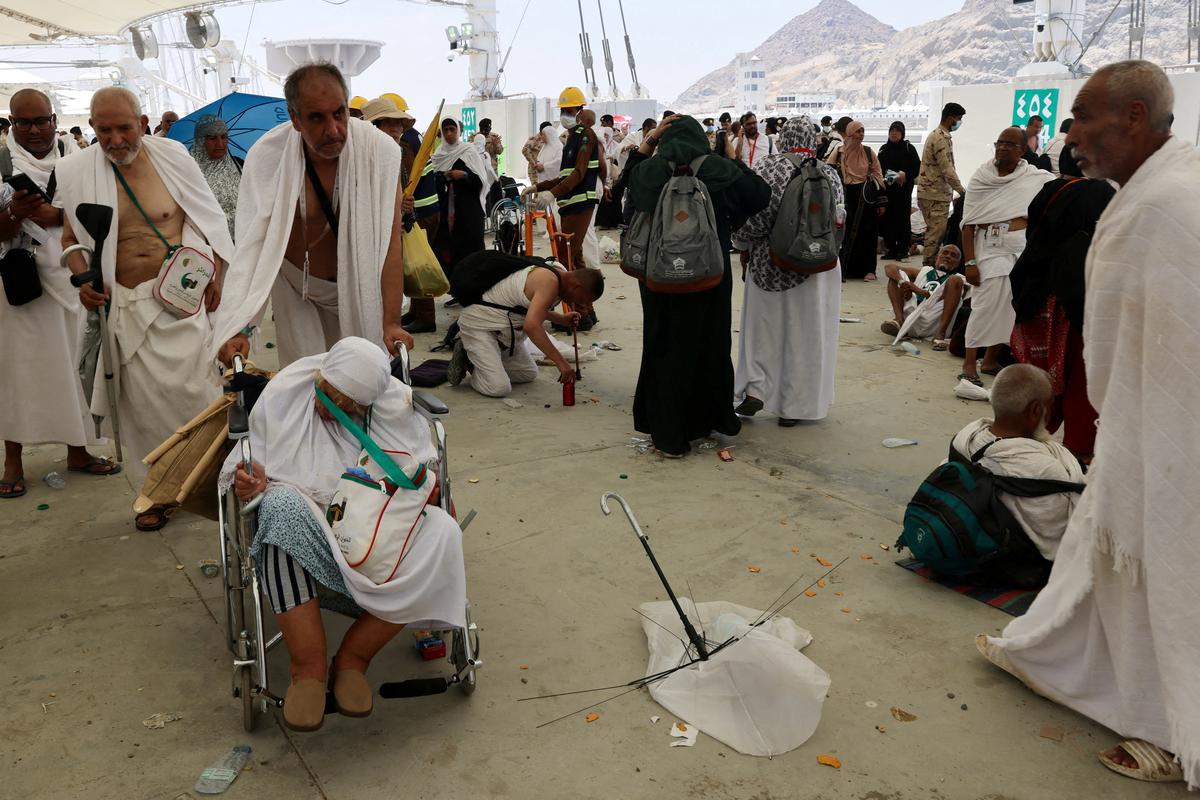Reports have confirmed that at least 1,301 individuals lost their lives during this year’s Hajj pilgrimage in Saudi Arabia, with the majority of the casualties being unregistered pilgrims who traversed long distances in scorching heat. The pilgrimage coincided with a severe heatwave, with temperatures soaring above 50°C (122°F). Shockingly, over three-quarters of the deceased did not possess official permits for the pilgrimage and were exposed to the relentless sun without adequate shelter, as per the Saudi Press Agency (SPA). Many of those who succumbed to the extreme conditions were elderly or suffered from chronic illnesses.
Hajj, a sacred obligation for financially and physically capable Muslims, draws approximately 1.8 million participants annually. The Saudi Health Minister, Fahd Al-Jalajel, acknowledged the efforts made to educate pilgrims about the perils of heat stress and provided insights into the treatment initiatives. Health facilities attended to nearly 500,000 pilgrims, including over 140,000 unregistered individuals, with some still under medical care due to heat-related ailments. Al-Jalajel expressed condolences to the bereaved families and prayed for the departed souls.
Saudi Arabia has faced censure for not implementing more robust safety measures during the Hajj, particularly for unregistered pilgrims lacking access to essential facilities such as air-conditioned tents and sanctioned transportation. The city of Mecca experienced record-breaking temperatures, peaking at 51.8°C, underscoring the extreme environmental challenges. While nations worldwide have disclosed the number of their citizens who perished, Saudi Arabia had not publicly addressed the fatalities or provided an official death toll until recently.
Various countries, including Egypt, Indonesia, India, Pakistan, Malaysia, Jordan, Iran, Senegal, Sudan, and Iraq’s Kurdistan region, have confirmed the loss of their nationals during the pilgrimage. This sobering reality has spurred swift action by some governments, evident in Egypt’s decision to revoke the licenses of 16 tourism firms and refer their executives to the judicial authorities for facilitating unauthorized Hajj journeys. Jordan also detained several travel agents involved in arranging unofficial pilgrimages, and Tunisian President Kais Saied relieved the minister of religious affairs from his position.
The allocation of Hajj permits operates on a quota system and is distributed through a lottery to individuals. However, the associated expenses drive many to attempt participation without proper permits, risking detention and deportation if apprehended. In the lead-up to the Hajj, Saudi authorities had reportedly expelled hundreds of thousands of unregistered pilgrims from Mecca.
As the aftermath of the tragedy unfolds, questions surrounding the welfare of pilgrims, particularly unregistered attendees, continue to loom large. The need for stringent safety measures and comprehensive oversight throughout the Hajj pilgrimage has been thrust into the spotlight, prompting calls for enhanced regulations and provisions to avert similar catastrophes in the future.
















